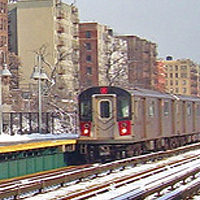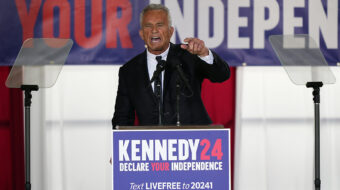
The oil-rich island nation of Trinidad and Tobago, which is located in the Caribbean just off the coast of Venezuela and not far from Cuba has, since mid-year 2012, become engulfed in political turmoil, in part a result of the breakup of the country’s ruling coalition.
In 2010 the People’s Partnership, or PP, a coalition of five parties that included the UNC (United National Congress), COP (Congress of the People) and MSJ, (Movement for Social Justice), came to power after defeating Patrick Manning and the PNM, (Peoples National Movement) – the remnants of the old Eric Williams regime.
With the victory of the PP, the UNC’s Kamla Persad-Bissessar became the nation’s Prime Minister and Errol McLeod, a former leader of the powerful Oilfield Workers Trade Union (OWTU), was named Minister of Labor. David Adulah, the current political leader of the MSJ, is also a leader of the OWTU.
The PP had come to power pledging honesty and transparency. The progressive and labor constituents of the coalition, including the MSJ, had expected a real sharing of power, including a decisive voice for labor right down to the shop floor level. They were quickly disappointed in this, although they remained, for a time, in the coalition government.
Beyond such disappointments, however, the MSJ and others have accused elements of the PP coalition of corruption, nepotism, cronyism, and abuse of power and authority, all things that the PP had pledged, in its statement of principals, to work against.
For this and other reasons the MSJ formerly left the government on June 17, 2012 and Abdulah resigned from his elected position as Senator, saying that the MSJ could not remain in the PP government because it was guilty of the same abuses that it had previously accused the Manning government of.
In this McLeod, evidently, has broken with his OWTU and MSJ comrades and has remained in the PP government. Now the remnants of that government, dominated by the UNC, are being accused of playing the “race card,” The UNC has traditionally been considered as an “Indian” party in T&T’s ethnic-based political environment although, as part of the PP coalition, it had originally pledged to move away from narrow ethnic politics. It is important to understand that T&T, like much of the Caribbean, still suffers from the legacy of the British divide and rule tactics, in this case applied between those of Indian and African background.
According to the official statements of Adulah and those of the MSJ the goal is to transform society and to build a mass party of farmers, workers and “patriotic” national bourgeoisies. A party that is not ethnically based and is committed to integrity, openness, transparency and accountability, features that, according to the MSJ and its allies, are lacking in the current government.
Local elections are scheduled for February on Tobago and the MSJ will be fielding candidates. However, Tobago, which has a smaller working class than Trinidad proper, has been described as not being as politically advanced and this may affect the outcome. Because the ruling PP has been discredited the former ruling party, the PNM, may do well in these elections, however, the more right-leaning constituent of the PP coalition, the COP may also appeal to Tobago voters.
Photo: Oil companies have their eyes on Trinidad and Tobago because it is rich in the source of their profits. Mike Baird/Flickr

MOST POPULAR TODAY

High Court essentially bans demonstrations, freedom of assembly in Deep South

Zionist organizations leading campaign to stop ceasefire resolutions in D.C. area

U.S. imperialism’s ‘ironclad’ support for Israel increases fascist danger at home

UN warns that Israel is still blocking humanitarian aid to Gaza







Comments